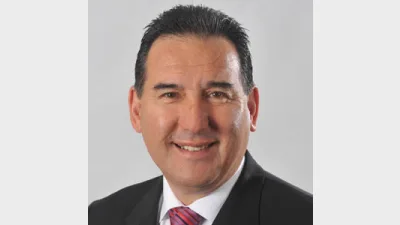Former PIS head claims ASIC out of touch



The former head of Professional Investment Services (PIS), Robbie Bennetts, has claimed that the Australian Securities and Investments Commission (ASIC) lacked an understanding of the financial services sector and had desire to bully those within it.
In a submission to the Senate review into the performance of ASIC, Bennetts stated that ASIC was not trusted and respected by the financial services sector and had an unwillingness to listen and to communicate with those within the sector.
Bennetts cited his 28 years experience in financial services, claiming he was well placed to make the comments and to argue for the need for change within ASIC.
Making reference to events which occurred during his time as chief executive of PIS, Bennetts stated that "the current strategy employed by ASIC is not only wrong, but more importantly it is bad for the consumer and advisers and has the very real potential of never sorting itself out correctly".
"We need a regulator that has the respect and trust by all participants in the industry - consumers, advisers, AFSL holders and product managers," Bennetts stated in his submission.
In claiming that ASIC lacked understanding, Bennetts stated that during his time with PIS the group struggled to demonstrate to a senior ASIC staff member that investment platforms were not products and was forced to reduce the number of platforms in use because of this lack of industry knowledge.
He also stated ASIC was not willing to work with industry participants - "rather they are after 'scalps' and the perception of being an active enforcer".
In support of this he claimed that after the collapse of Westpoint, PIS was forced to repay its clients 100 per cent of lost funds after ASIC threatened to remove the group's licence. Bennetts stated this was despite alleged fraud in the collapsed Westpoint, and PIS' reliance on a research house recommendation to use the investment.
Bennetts stated PIS had to comply with the request because "when faced with what I firmly believe were standover tactics by the regulator - 'settle or we will close you down' - what choice did we have but to comply?"
He claimed this type of behaviour was the result of ASIC regarding financial advisers and Australian Financial Services Licence holders as ‘easy scapegoats’ while not holding product providers accountable for failed products or corporate behaviour.
“It appears that over recent years, a product that fails in Financial Services is the responsibility of the person who advised its use – whereas in other sectors it is normal that the manufacturer of the product that bears responsibility” Bennett stated in the submission.
“Surely liability for failed products lies with the product manager who has the control, responsibility and ultimate benefit – not the intermediary.”
“Remove product failure and you remove 98 per cent of bad advice. Failing to ‘dot an I’ or ‘cross a t’ is not what causes financial losses.”
Recommended for you
A strong demand for core fixed income solutions has seen the Betashares Australian Composite Bond ETF surpass $1 billion in funds under management, driven by both advisers and investors.
As the end of the year approaches, two listed advice licensees have seen significant year-on-year improvement in their share price with only one firm reporting a loss since the start of 2025.
Having departed Magellan after more than 18 years, its former head of investment Gerald Stack has been appointed as chief executive of MFF Group.
With scalability becoming increasingly important for advice firms, a specialist consultant says organisational structure and strategic planning can be the biggest hurdles for those chasing growth.











